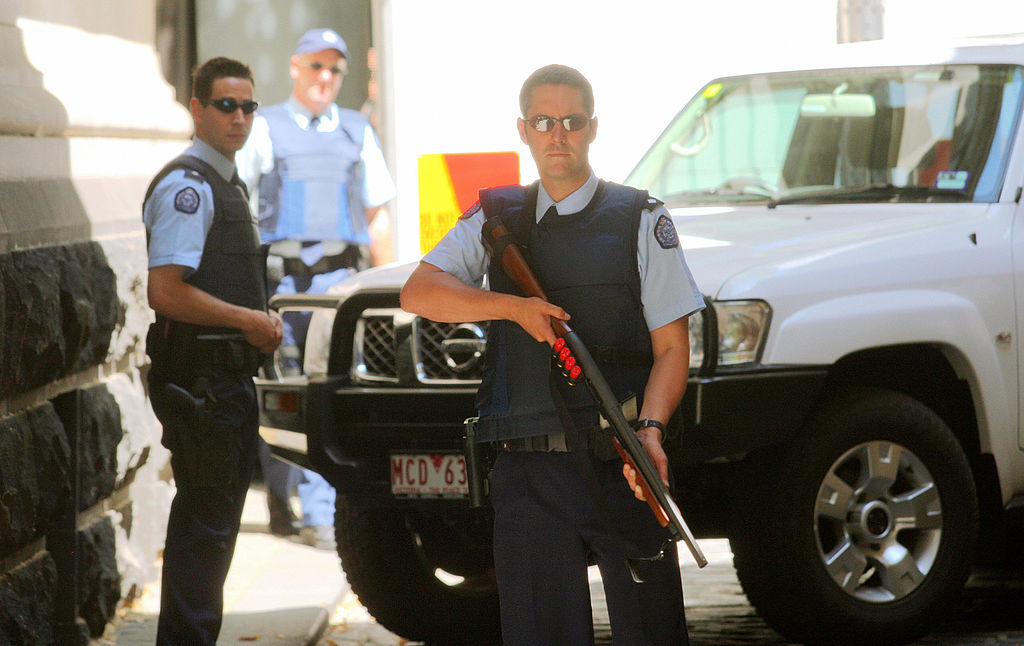Some offenders are too dangerous to be freed
Posted By Justin Bassi and John Coyne on June 9, 2023 @ 10:30

Countering terrorism while preserving essential freedoms and holding together a stable and harmonious community isn’t an easy task, but it has been managed effectively by successive Australian governments and their agencies.
The Albanese government’s focus on national resilience to provide greater assurance to Australians in the face of rising global uncertainty is vital, and combines aims such as security, diversity and prosperity to increase our overall preparedness to withstand crises or incidents without turning on each other.
The repatriation of women and children from Syria earlier this year was a prime example, relying on the expertise of security agencies, police and community leaders to manage risks and assuage understandable community concerns.
However, the case of convicted al-Qaeda terrorist Abdul Nacer Benbrika is testing the way we prioritise public security and safety in a much more fraught way, with a key national security legislation watchdog recommending the abolition of the legal measure that has kept Benbrika behind bars beyond his original sentence.
The federal government should not accept this recommendation. The risk presented by some offenders is simply too great.
Benbrika will soon return for his final day in the Victorian Supreme Court to challenge his detention. Foremost among the questions facing the national security community is what to do with the practice of continuing detention orders or CDOs, which enable a court to order that a prisoner be detained beyond their sentence if they are deemed to pose an unacceptable continuing risk.
In 2008, Benbrika was found guilty of leading an Australian terror cell that plotted to blow up Australian landmarks and sentenced to 15 years in jail. He completed that sentence on 5 November 2020 but, based on assessments that he remained an ‘unacceptable risk … if released into the community’, the federal government sought and obtained from the Victorian Supreme Court a three-year CDO.
The court agreed to the CDO after considering an expert’s report and taking into account factors such as the safety and protection of the community and Benbrika’s participation or lack thereof in treatment and rehabilitation.
In March, however, the Independent National Security Legislation Monitor, Grant Donaldson, released a scathing report that questioned whether the assessment tools used by the courts in deciding CDOs predicted risk accurately.
Donaldson argued that CDOs should be abolished and non-custodial measures such as extended supervision and preventive orders used instead.
‘Detention in a prison is too profound a thing to be determined by prediction about the future based on this risk assessment process,’ he wrote.
The monitor’s role is part of the comprehensive system of checks and balances that is integral to Australia’s security. Our laws do need regular review. But our security requires the government and parliament to reject this recommendation.
We have to learn from history and our misjudgements. It might seem tempting to wind back laws when global terrorist groups are seemingly in retreat. But in January 2013, the government declared the era of terrorism over—only to see Islamic State rise within the year.
Offenders who are radicalised into terrorist ideology can be rehabilitated, but recidivism does occur.
Monitoring by security agencies is not a replacement for imprisonment, as the case of Ahamed Samsudeen in New Zealand showed. Regarded as a terrorism risk, Samsudeen was under surveillance by New Zealand Police. That didn’t stop him from entering an Auckland supermarket on 3 September 2021 and grabbing a knife. It only took the police surveillance team one minute to realise he was launching an attack and a further 30 seconds to shoot him dead. But in that time, he injured eight people.
We need surveillance and supervision, as well as rehabilitation. But these measures must be part of a comprehensive framework.
The monitor’s report fails to recognise that Australian communities are made safer, including from terrorism, through the combined effect of a systematic approach to managing threats.
The High Court has previously upheld the legality of CDOs. Rather than throwing out the practice altogether, a better approach would be to improve and reform it. Some adjustments could address the challenges that have been raised as in a critical academic report that questioned [1] the effectiveness of the expert tool that assesses risk.
There’s an additional option to keep Benbrika off our streets. In 2020, the government cancelled his Australian citizenship on the basis that he was born in Algeria and hence a national of that country. This month, the government revoked his non-citizen visa. This likely means that if Benbrika is released later this year, he would be taken immediately to immigration detention to await deportation to Algeria.
But that might not keep him from posing a risk to Australians. Benbrika is appealing his citizenship and visa cancellation in the High Court. Even if he’s deported, Algeria might be unable to prevent his becoming a threat there or to Australians elsewhere. We would effectively be asking Algeria to do what we are unwilling to do. Deportation should be our last resort, not our first and only option, to keep Australians safe.
Australia has 20 other convicted terrorists due for release between now and 2027. Not all will be dual nationals who can have their Australian citizenship revoked.
Our resilience depends on a carefully balanced national security strategy that takes account of individual rights as well as community protection. A community is stronger if it feels the government is making difficult but necessary decisions to keep people safe.
That means maintaining a comprehensive framework that includes enforcement to punish wrongdoers, rehabilitation to reintegrate offenders, and prevention and deterrence to stop crimes. All are necessary for community trust, resilience and safety.
Article printed from The Strategist: https://www.aspistrategist.org.au
URL to article: https://www.aspistrategist.org.au/some-offenders-are-too-dangerous-to-be-freed/
URLs in this post:
[1] questioned: https://www.abc.net.au/news/2023-05-12/benbrika-control-orders-secret-report-released/102326892
Click here to print.